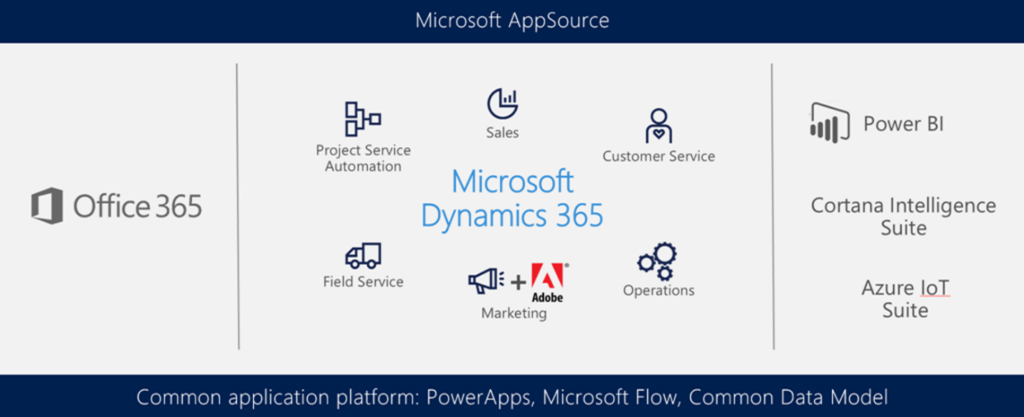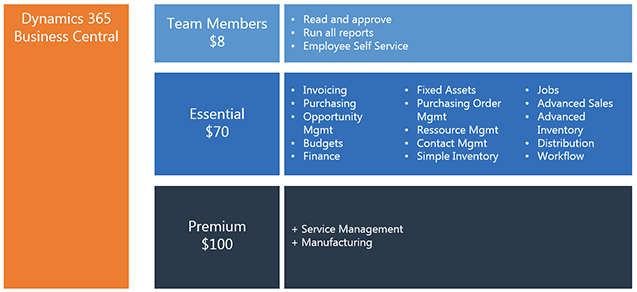One of the biggest reasons that Microsoft leads the ERP industry is their commitment to constantly improving and evolving to meet the changing needs of businesses. However, it occasionally results in a bit of confusion. That is the case with Microsoft Dynamics 365 Business Central. Let’s clear a few things up:
What IS Dynamics 365 Business Central?
Dynamics 365 Business Central is a cloud-based, all-in-one ERP solution for every department from accounting to Sales. It looks to connect all the disparate processes within a business to improve data-based decision-making, optimize customer interaction, and reduce inefficiencies. There are various editions to the platform that allow users to choose exactly what they need (therefore, not paying for what they don’t). Business Central joins the ranks alongside the other Microsoft ERPs like Dynamics GP and Dynamics SL – it does not replace them.

It may be helpful to mention what else Dynamics 365 Business Central is not. If you’re familiar with Microsoft products, you have likely heard the terms Madeira and Tenerife used to describe this platform – those terms are both obsolete. Anybody with a computer has likely heard Office 365. Though it sounds similar, this also has nothing to do with Dynamics 365 Business Central.
What Dynamics 365 Business Central is, is a solution based on Dynamics NAV. It currently has over 165,000 global customers with 2.7 million daily users. We tend to say it was “built on the back of Dynamics NAV;” that is to say, if it isn’t broke, don’t fix it. Microsoft took all of the features that users loved in Dynamics NAV and simply moved them onto a cloud-based platform.
Why does the cloud-based aspect matter?
Most modern ERP solutions are looking to move to the cloud, for a multitude of reasons. Dynamics 365 Business Central being a cloud-based platform means that updates will come directly from Microsoft automatically. There is no limit to the number of users that can access the platform, no company limit, or database size limit.
Customized for You.
Additionally, this solution can be customized more easily through APIs and other developer tools. Cloud-based platforms will always have the edge when it comes to customization, and Dynamics 365 Business Central is no different. Microsoft has [designed] several APIs which allow for true customization. And, like legacy platforms like Dynamics GP, developers are still able to set up a unique, customized environment for end users that suits their unique business needs.
What’s the same?
Dynamics 365 Business Central has all the functions you expect every ERP system to have:
- Financial Management (which is the strongest feature – if a company primarily uses this module, they’re a great candidate for the switch to Dynamics 365 Business Central.)
- Supply Chain Management
- Customer Relationship Management
- Jobs (Project Accounting)
- Service Management
- Manufacturing
All of the modules are customizable, with in-app API functionality, custom developed environments from your Crestwood team member, or through the countless ISV products that exist for Dynamics 365 Business Central.
For more detailed information about the platform, view this presentation from Crestwood’s partner, Tim Thompson. It is the first in a series of webinars detailing the features of Dynamics 365 Business Central. Click here to sign up for the next webinar in the series!
